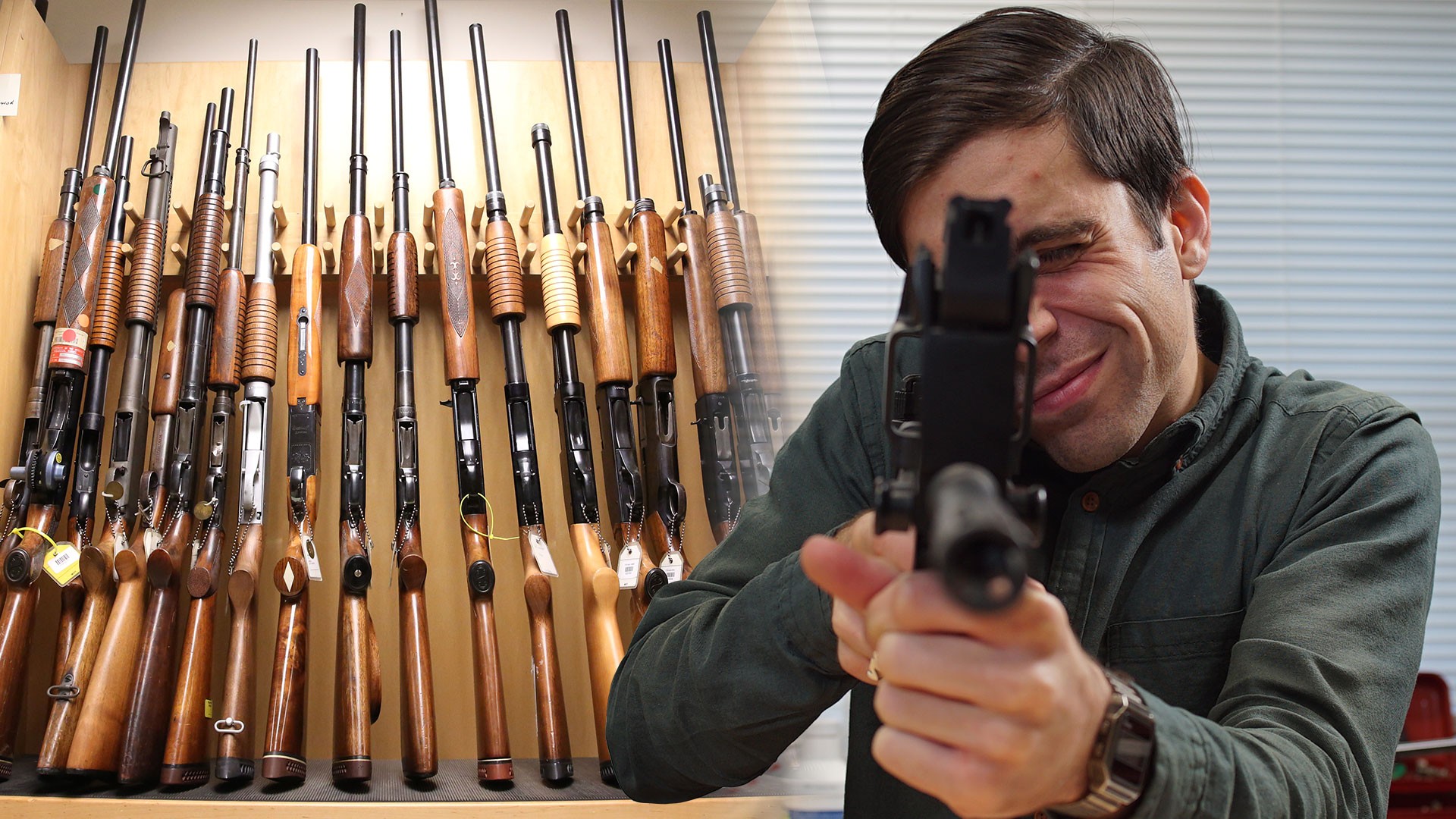Ethan Miller/Getty Images
At least 58 people are dead and more than 500 were injured after a shooting at a concert in Las Vegas yesterday, making it the deadliest mass shooting in US history. In a grim coincidence, a study released today found that gun-related injuries contribute to $2.8 billion worth of emergency room and inpatient expenses annually.An estimated 93 Americans die from gun-related incidents each day, for a total of 33,000 deaths a year. Gun-related deaths are the third leading cause of injury-related deaths in the US, but research has been limited in assessing both national trends and risk factors as well as the financial costs of these injuries, study co-author Faiz Gani, a research fellow at the Johns Hopkins Surgery Center for Outcomes Research, said in a press release.For the study, researchers gathered patient information from the Nationwide Emergency Department Sample. The researchers focused on 150,930 cases in which patients arrived in the emergency room to receive care for gunshot-related injuries between 2006 and 2014. A substantial portion of the patients were wounded from assaults (49.5 percent), while 35.3 percent of the cases were due to unintentional injuries, and 5.3 percent of the patients attempted suicide. Firearm injuries, the report explains, are nine times more common in men than in women, and these cases are more common among men 20 to 24 years old.The results, which were published in Health Affairs today, showed that about 37.2 percent of these patients received inpatient care, and 8.3 percent died while being treated in the emergency room. The average cost for emergency department care for each patient was $5,254, while the average inpatient expenses were $95,887. That adds up to an estimated $2.8 billion in annual medical costs nationwide.
Watch more from Motherboard:
But it's likely that the costs are substantially higher. The study authors note that the $2.8 billion figure doesn't include postdischarge care needed for gunshot victims such as physical therapy, trauma counseling, and in-home care. Gani explained another limitation in the release, which is that the study doesn't reflect cases in which the patient died before getting to the hospital or those who didn't visit the emergency room following a gunshot injury. Still, he is convinced that the new findings provided an updated understanding of the gun violence trend.Gun-related injuries are a public health concern that require preventive resources, not just post-shooting attention, and not enough studies on the topic are being funded because of politics, says co-author Joseph Sakran, the associate chief of acute care surgery at Johns Hopkins Hospital."First let me say that my prayers are with the victims in Las Vegas. Our thoughts are with their families and everyone enduring yet another senseless tragedy," Sakran says. "This article was scheduled to be published today and it just happened to coincidentally be in the wake of this very sad and somber day for Americans all across this nation."Unfortunately, death and injury from firearms happens on a daily basis and does not always get the media attention that is seen during horrific mass shootings such as last night in Las Vegas," Sakran says. "I'm hoping that after this incident we can all finally come together and promote more research on this topic and more importantly allocate greater funding for such studies. Only through a better understanding of this issue will we be able to pass policies that ensure that we're not back here having the same conversation a year from today."The new paper outlines the scope of the funding problem. The authors write: "While gun violence is responsible for about as many deaths as sepsis is, funding for gun violence research is equivalent to 0.7 percent of the funding allocated for sepsis, and for every hundred articles published on sepsis, only about four are published on gun violence."Of course, research can only do so much; we also need lawmakers who will listen. "Although numerous previous studies have identified and proposed effective interventions to limit firearm-related violence," the authors write, "efforts to reduce firearm-related injuries have been limited as a result of the politicized environment surrounding gun violence and a lack of will to consistently implement proposed policies."For their part, the authors proposed universal background checks for all gun purchases—regardless of whether they're made online, in a store, or at a gun show—in order to limit access to guns for people with a history of violence or previous convictions."The only way to truly and effectively understand this public health concern is to better study this issue and develop effective policies that can prevent these injuries and deaths," Sakran says. "We hope that our study taken with previous works can lead this conversation and play a role in providing evidence for more effective future policies."Read This Next: The Government Quietly Let Funding Lapse for Gun Violence Research
Advertisement
Watch more from Motherboard:

But it's likely that the costs are substantially higher. The study authors note that the $2.8 billion figure doesn't include postdischarge care needed for gunshot victims such as physical therapy, trauma counseling, and in-home care. Gani explained another limitation in the release, which is that the study doesn't reflect cases in which the patient died before getting to the hospital or those who didn't visit the emergency room following a gunshot injury. Still, he is convinced that the new findings provided an updated understanding of the gun violence trend.
Advertisement